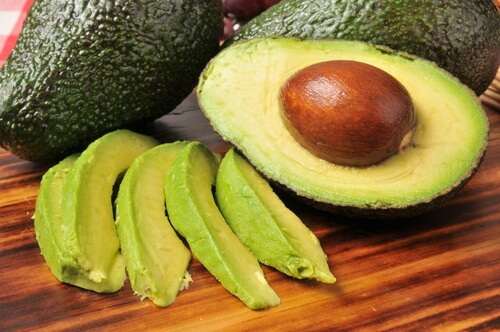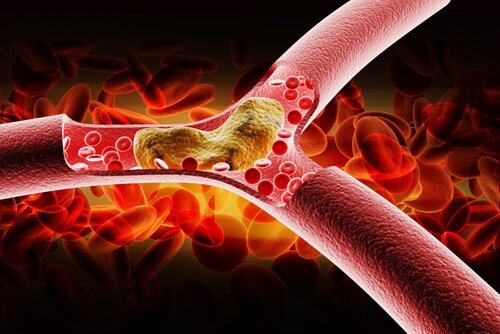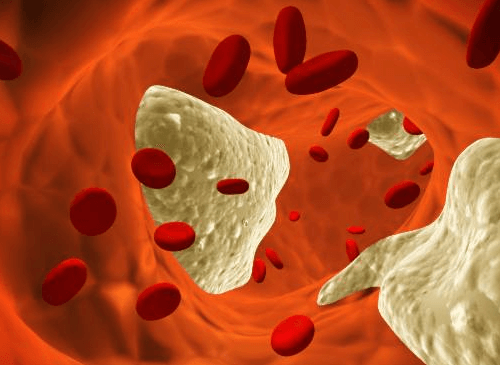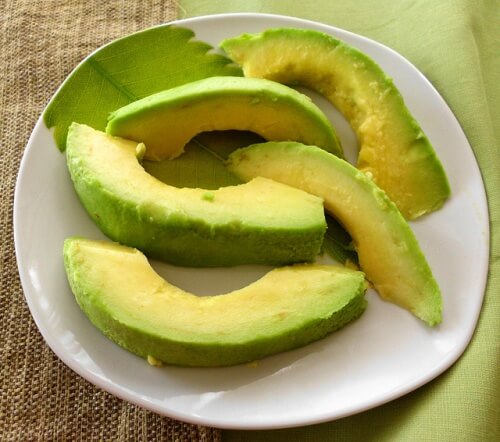What Happens to Your Cholesterol if You Eat Avocado Every Day

Ever wondered what happens to your cholesterol if you eat avocado every day?
According to a study performed by the University of Pennsylvania, unsaturated fats in avocados could help stabilize bad cholesterol levels to prevent clogged arteries.
Many people are worried about their cholesterol levels. This lipid, present in blood, can accumulate in large amounts, leading to several cardiovascular problems that could put your health at risk.
In some ways, cholesterol carries out a necessary role in the body, enabling various important organs to function optimally. However, with a poor diet, cholesterol levels can increase to dangerous levels.
What’s worrisome is that at first it could be fairly difficult to detect without specific symptoms. In fact, millions of people today are believed to suffer from high cholesterol without even knowing it.
The good news is that different studies have found that making dietary certain changes and leading a healthy lifestyle can be one of the best solutions for keeping it under control and reducing your risks.
One study published in the Journal of the American Heart Association revealed that if you eat avocado every day, you could keep bad cholesterol levels under control.
The study

Researchers at Penn State University suggested substituting saturated fats (present in most diets) with unsaturated fats (which are found in foods like avocado).
They also considered that for the past few years, people have been advised to eat monounsaturated and polyunsaturated fats to reduce the risk of developing cardiovascular diseases caused by high cholesterol.
Saturated fats are what raise cholesterol levels and increase the risk of clogged arteries and lethal diseases, like heart attacks or strokes.
Researchers evaluated what effects avocados have on cardiovascular risk factors, since they’re one of the fruits with the highest content of unsaturated fats.
To get their results, they substituted saturated fats in the diets of 45 healthy patients who were overweight or obese, between the ages of 21 and 70.
The volunteers began by eating a diet high in saturated fat for two weeks. Afterwards, they followed three types of diets, reducing the amount of saturated fat:
- One low-fat diet, without avocados
- One moderate-fat diet without avocados
- One moderate-fat diet, while eating one avocado a day
The results

After finishing their analysis, the researchers determined that LDL cholesterol levels were reduced by incorporating one avocado a day into their diets.
In total, numbers were reduced by 13.5 mg/dl, compared to 8.3 mg/dl in those who consumed a moderate-fat diet without avocado, or 7.4 mg/dl in the low-fat diet.
They also found that when you eat avocado, it has a positive effect on cholesterol and triglyceride control.
The conclusions
After seeing the surprising results, the researchers emphasized the importance that more studies were necessary to determine if these effects were the same in other populations.
They did, however, find that unsaturated fats in avocados could create a heart-healthy diet, obviously while being supported by other highly nutritious foods.
Healthy fats, micronutrients, and bioactive components contained in avocados are responsible for these important cardiovascular benefits.
Penny Kris Etherton, one of the researchers, has assured that she would like to continue researching to determine more precisely what bioactive components are contained in avocados, along with their effects on the body.
Eat avocado, a healthy food

In spite of the fact that avocados had a bad reputation for several years due to their high caloric and fat contents, they’re currently considered to be one of the most complete and healthy foods around.
They can be added to your daily diet, always in moderation.
In addition to the beneficial fats already mentioned, this popular fruit also contains fiber, vitamin E, vitamin B, folic acid, and more than twice the amount of potassium in bananas.
Are you afraid of having high cholesterol? Make a few dietary modifications and start to eat avocado every day to keep your cholesterol at bay.
All cited sources were thoroughly reviewed by our team to ensure their quality, reliability, currency, and validity. The bibliography of this article was considered reliable and of academic or scientific accuracy.
- Wang, L., Bordi, P. L., Fleming, J. A., Hill, A. M., & Kris-Etherton, P. M. (2015). Effect of a moderate fat diet with and without avocados on lipoprotein particle number, size and subclasses in overweight and obese adults: A randomized, controlled trial. Journal of the American Heart Association. https://doi.org/10.1161/JAHA.114.001355
- Duarte, P. F., Chaves, M. A., Borges, C. D., & Mendonça, C. R. B. (2017). Avocado: Characteristics, health benefits, and uses. International News on Fats, Oils and Related Materials. https://doi.org/10.1590/0103-8478cr20141516
- Alvizouri-Muñoz, M., Carranza-Madrigal, J., Herrera-Abarca, J., Chávez-Carbajal, F., & Amezcua-Gastelum, J. (1992). Effects of Avocado as a source of Monounsaturated fatty acids on plasma lipid levels. Archives of Medical Research.
- Fundación Española de la Nutrición. Aguacate. http://www.fen.org.es/mercadoFen/pdfs/aguacate.pdf
- Journal of the American Heart Association. (2015). Abstract 17: One Avocado Per Day Lowers Plasma Oxidized-LDL and Increases Plasma Antioxidants in Overweight and Obese Adults. https://www.ahajournals.org/doi/abs/10.1161/circ.131.suppl_1.17?sid=0e28ec4e-0e47-4fb6-b9b9-0ecd4af3048f
- MedlinePlus. Colesterol. https://medlineplus.gov/spanish/cholesterol.html
- PennState. One avocado a day helps lower ‘bad’ cholesterol for heart healthy benefits. https://news.psu.edu/story/592523/2019/10/28/research/one-avocado-day-helps-lower-bad-cholesterol-heart-healthy-benefits
- MedlinePlus. Grasas saturadas. https://medlineplus.gov/spanish/ency/patientinstructions/000838.htm
This text is provided for informational purposes only and does not replace consultation with a professional. If in doubt, consult your specialist.








